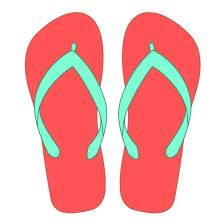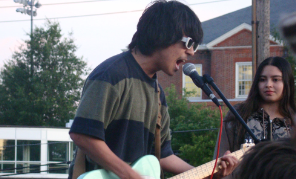 While most students are still in bed at 4:30 on a school morning, freshman Halid Hamadi may already be up, preparing to engage in what will be one of two meals he eats that day.
While most students are still in bed at 4:30 on a school morning, freshman Halid Hamadi may already be up, preparing to engage in what will be one of two meals he eats that day.
“We eat at sunset and sunrise and that’s it,” said Hamadi.
Ramadan is a month-long period of daytime fasting that many Muslims engage in as a time of reflection and as a way to strengthen their relationship with God, or Allah. Although the start time changes yearly due to the lunar calendar, Ramadan coincided with the start of school this year, starting Sept. 2 and ending Sept. 30. Ramadan usually begins with a pre-fast meal, called suhoor, before dawn, and a post-fast meal, iftar, after sunset. Fasting ends with a celebration called Eid-ul-Fitr, which is a time to visit with friends and loved ones, to relax and abstain from working, and, depending on the family, exchange gifts or money. Above all, Ramadan is a time of personal growth and spiritual gain.
“It’s about wiping your slate clean and putting your best foot forward,” said junior Peggy Mariani.
Junior Aliyah Sadegh, who is also fasting, thinks Ramadan is a time for improving one’s character.
“I think that fasting increases the level of patience in people, which is really beneficial in life,” said Sadegh.
An e-mail sent by Principal Christopher Garran to the WJ staff at the beginning of the month explained that teachers should be aware that some students might struggle with their workload because of the strain of fasting. Student opinion on how much Ramadan affects one’s daily routine is mixed.
“It’s not that hard,” said Hamadi, who has been fasting for the past five years. “People act like one day is impossible.”
Other students concede to napping in the afternoon because fasting makes them feel tired during the day.
“It’s harder to take tests and things,” said Mariani.
Junior Fadia Benahmed is fasting for the first time this year, in part because of a visit from her more religious family from Algeria, who discussed their commitment to fasting.
“The only days it’s been challenging was when the weather was really hot, or when I was thirsty,” said Benahmed. “During lunch I just go into [my English classroom] and do stuff, because I don’t really want to be around food.”
Although the opinions on difficulty vary, students like Sadegh appreciate when teachers make an effort to empathize with students who choose to fast.
“The teachers are really understanding,” said Sadegh. “I remember that [Stephanie Deonarain], my chemistry teacher last year, mentioned to the whole class, ‘I have a great patience for those who are fasting for Ramadan,’ and that made me feel really good.”
Beyond their commitment to the practice, the act of fasting leads many students to explain at least a little about their beliefs to their unaware, or even misinformed, peers. Open about his religion, Hamadi admits that he encounters occasional prejudice, although he has not witnessed much intolerance at WJ.
“There are always those stereotypes that all of us are terrorists or something,” said Hamadi. “People [at school] joke around about it, but I don’t really care.”
For Benahmed, the issues of terrorism that emerged after the Sept. 11 terrorist attacks created a rare time when discussing her beliefs was difficult.
“People were so judgmental and stereotyping,” said Benahmed. “But now, I grew up. It doesn’t matter now, people can think what they want.”
For the most part, these Muslim students find their peers to be very accepting, and often curious to learn more about Ramadan and their beliefs. But explaining the personal satisfaction of fasting may be the harder concept for non-Muslim students to grasp.
“I get a lot of people feeling sorry for me, especially during lunch, and some people have even tried to make me eat anyway, saying ‘no one will know!’” said Mariani. For her, fasting is something that she and many of her Muslim friends look forward to.
“It’s the time when family and friends come together, and there’s a festive atmosphere every night of the month,” said Mariani.
Sadegh, who moved here three years ago from Iran, is impressed with how much her classmates already know about fasting and Ramadan. Like Mariani, she wishes that her peers could take the next step and understand that fasting is by no means a miserable experience.
“People [want] to know why I fast, especially those who are not Muslims, because I always get… ‘Oh, I’m so sorry, when does this thing end?’ or ‘Oh my God, I would never do that,” said Sadegh. “I really want to explain to them that I don’t fast because I have to, I fast because I love to.”







